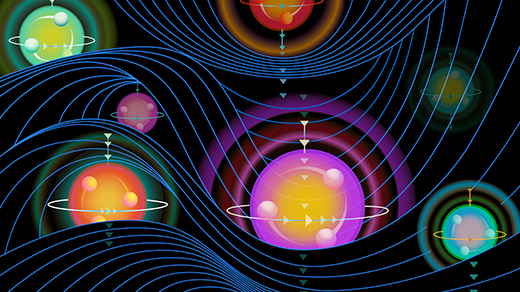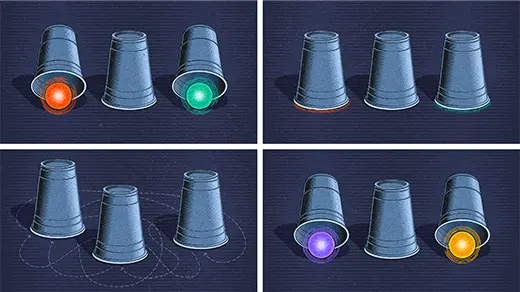Controversy Continues Over Whether Hot Water Freezes Faster Than Cold
Introduction
It sounds like one of the easiest experiments possible: Take two cups of water, one hot, one cold. Place both in a freezer and note which one freezes first. Common sense suggests that the colder water will. But luminaries including Aristotle, Rene Descartes and Sir Francis Bacon have all observed that hot water may actually cool more quickly. Likewise, plumbers report hot water pipes bursting in subzero weather while cold ones remain intact. Yet for more than half a century, physicists have been arguing about whether something like this really occurs.
The modern term for hot water freezing faster than cold water is the Mpemba effect, named after Erasto Mpemba, a Tanzanian teenager who, along with the physicist Denis Osborne, conducted the first systematic, scientific studies of it in the 1960s. While they were able to observe the effect, follow-up experiments have failed to consistently replicate that result. Precision experiments to investigate freezing can be influenced by many subtle details, and researchers often have trouble determining if they have accounted for all confounding variables.
Over the past few years, as the controversy continues about whether the Mpemba effect occurs in water, the phenomenon has been spotted in other substances — crystalline polymers, icelike solids called clathrate hydrates, and manganite minerals cooling in a magnetic field. These new directions are helping researchers peek into the complicated dynamics of systems that are out of thermodynamic equilibrium. A contingent of physicists modeling out-of-equilibrium systems has predicted the Mpemba effect should occur in a wide variety of materials (along with its inverse, in which a cold substance heats up faster than a warm one). Recent experiments appear to confirm these ideas.
Yet the most familiar substance of all, water, is proving to be the slipperiest.
“A glass of water stuck in a freezer seems simple,” said John Bechhoefer, a physicist at Simon Fraser University in Canada whose recent experiments are the most solid observations of the Mpemba effect to date. “But it’s actually not so simple once you start thinking about it.”
‘That Cannot Happen’
“My name is Erasto B. Mpemba, and I am going to tell you about my discovery, which was due to misusing a refrigerator.” Thus begins a 1969 paper in the journal Physics Education in which Mpemba described an incident at Magamba Secondary School in Tanzania when he and his classmates were making ice cream.

The late Erasto Mpemba initiated decades of research into whether hot water freezes faster than cold water.
PA Images / Alamy Stock Photo
Space was limited in the students’ refrigerator, and in the rush to nab the last available ice tray, Mpemba opted to skip waiting for his boiled-milk-and-sugar concoction to cool to room temperature like the other students had done. An hour and a half later, his mixture had frozen into ice cream, whereas those of his more patient classmates remained a thick liquid slurry. When Mpemba asked his physics teacher why this occurred, he was told, “You were confused. That cannot happen.”
Later, Osborne came to visit Mpemba’s high school physics class. He recalled the teenager raising his hand and asking, “If you take two beakers with equal volumes of water, one at 35°C and the other at 100°C, and put them into a refrigerator, the one that started at 100°C freezes first. Why?” Intrigued, Osborne invited Mpemba to the University College in Dar es Salaam, where they worked with a technician and found evidence for the effect that bears Mpemba’s name. Still, Osborne concluded that the tests were crude and more sophisticated experiments would be needed to figure out what might be going on.

Mpemba first observed the alleged effect that bears his name in the 1960s as a student at Magamba Secondary School in Tanzania. The school’s auditorium is shown in 2009.
imageBROKER / Alamy Stock Photo
Over the decades, scientists have offered a wide variety of theoretical explanations to explain the Mpemba effect. Water is a strange substance, less dense when solid than liquid, and with solid and liquid phases that can coexist at the same temperature. Some have suggested that heating water might destroy the loose network of weak polar hydrogen bonds between water molecules in a sample, increasing its disorder, which then lowers the amount of energy it takes to cool the sample. A more mundane explanation is that hot water evaporates faster than cold, decreasing its volume and thus the time it takes to freeze. Cold water also could contain more dissolved gases, which lower its freezing point. Or perhaps external factors come into play: A layer of frost in a freezer can act as an insulator, keeping heat from leaking out of a cold cup, whereas a hot cup will melt the frost and cool faster.
Those explanations all assume that the effect is real — that hot water really does freeze faster than cold. But not everyone is convinced.
In 2016, physicist Henry Burridge of Imperial College London and mathematician Paul Linden of the University of Cambridge did an experiment that showed how sensitive the effect is to the particulars of measurement. They speculated that hot water might form some ice crystals first but take longer to fully freeze. Both of these events are difficult to measure, so Burridge and Linden instead noted how long it took water to reach zero degrees Celsius. They found that the readings depended on where they placed the thermometer. If they compared the temperatures between hot and cold cups at the same height, the Mpemba effect didn’t appear. But if measurements were off by even a centimeter, they could produce false evidence of the Mpemba effect. Surveying the literature, Burridge and Linden found that only Mpemba and Osborne, in their classic study, saw a Mpemba effect too pronounced to attribute to this kind of measurement error.
The findings “highlight how sensitive these experiments are even when you don’t include the freezing process,” said Burridge.
Strange Shortcuts
Yet a good number of researchers think the Mpemba effect can occur, at least under certain conditions. After all, Aristotle wrote in the fourth century BCE that “many people, when they want to cool water quickly, begin by putting it in the sun,” the benefits of which were presumably noticeable even before the invention of sensitive thermometers. School-age Mpemba was similarly able to observe the unsubtle difference between his frozen ice cream and his classmates’ slurry. Still, Burridge and Linden’s findings highlight a key reason why the Mpemba effect, real or not, might be so hard to pin down: Temperature varies throughout a cup of rapidly cooling water because the water is out of equilibrium, and physicists understand very little about out-of-equilibrium systems.
In equilibrium, a fluid in a bottle can be described by an equation with three parameters: its temperature, its volume and the number of molecules. Shove that bottle in a freezer, and all bets are off. The particles at the outer edge will be plunged into an icy environment while those deeper in will remain warm. Labels like temperature and pressure are no longer well defined but instead constantly fluctuate.
When Zhiyue Lu of the University of North Carolina read about the Mpemba effect in middle school, he snuck into an oil refinery in the Shandong province of China where his mother worked and used precision lab equipment to measure temperature as a function of time in a sample of water (he ended up supercooling the water without it freezing). Later, while studying nonequilibrium thermodynamics as a graduate student, he tried to reframe his approach to the Mpemba effect. “Is there any thermodynamic rule that will forbid the following: Something starting further away from the final equilibrium that would approach equilibrium faster than something starting from close?” he asked.


Zhiyue Lu of the University of North Carolina (top) and Oren Raz of the Weizmann Institute of Science in Israel have shown that hot liquids may find “strange shortcuts” to their freezing points.
Robert Filcsik (top); Itai Belson / Weizmann Institute of Science
Zhiyue Lu of the University of North Carolina (left) and Oren Raz of the Weizmann Institute of Science in Israel have shown that hot liquids may find “strange shortcuts” to their freezing points.
Robert Filcsik (left); Itai Belson / Weizmann Institute of Science
Lu met Oren Raz, who now studies nonequilibrium statistical mechanics at the Weizmann Institute of Science in Israel, and they began developing a framework to investigate the Mpemba effect generally, not just in water. Their 2017 paper in the Proceedings of the National Academy of Sciences modeled the random dynamics of particles, showing that in principle there are nonequilibrium conditions under which the Mpemba effect and its inverse could occur. The abstract findings suggested that the components of a hotter system, by virtue of having more energy, are able to explore more possible configurations and therefore discover states that act as a sort of bypass, allowing the hot system to overtake a cool one as both dropped toward a colder final state.
“We all have this naive picture that says temperature should change monotonically,” said Raz. “You start at a high temperature, then a medium temperature, and go to a low temperature.” But for something driven out of equilibrium, “it’s not really true to say that the system has a temperature,” and “since that’s the case you can have strange shortcuts.”
The thought-provoking work drew the interest of others, including a Spanish group that began simulating what are known as granular fluids — collections of rigid particles that can flow like liquids, such as sand or seeds — and showed that these, too, can have Mpemba-like effects. Statistical physicist Marija Vucelja of the University of Virginia started wondering how common the phenomenon might be. “Is this like is a needle in a haystack, or could it be useful for optimal heating or cooling protocols?” she asked. In a 2019 study, she, Raz, and two co-authors found that the Mpemba effect could appear in a significant fraction of disordered materials, such as glass. While water is not such a system, the findings covered an enormous variety of possible materials.
To investigate whether these theoretical hunches had any real-world basis, Raz and Lu approached Bechhoefer, an experimentalist. “Literally, they kind of grabbed me after a talk and said, ‘Hey, we’ve got something we want you to hear about,’” Bechhoefer recalled.
Exploring the Landscape
The experimental setup Bechhoefer and his collaborator Avinash Kumar came up with offers a highly conceptual, stripped-down look at a collection of particles under the influence of different forces. A microscopic glass bead representing a particle is placed in a W-shaped “energy landscape,” created using lasers. The deeper of the two valleys in this landscape is a stable resting place. The shallower valley is a “metastable” state — a particle can fall into it but may eventually get knocked into the deeper well. The scientists submerged this landscape in water and used optical tweezers to position the glass bead within it 1,000 different times; collectively, the trials are equivalent to a system with 1,000 particles.
Merrill Sherman/Quanta Magazine; source: Nature
An initially “hot” system was one where the glass bead could be placed anywhere, since hotter systems have more energy and can therefore explore more of the landscape. In a “warm” system, the starting position was confined to a smaller area close to the valleys. During the cooling process, the glass bead first settled into one of the two wells, then spent a longer period jumping back and forth between them, buffeted by water molecules. Cooling was considered complete when the glass bead stabilized into spending specific amounts of time in each well, such as 20% of its time in the metastable one and 80% in the stable one. (These ratios depended on the water’s initial temperature and the valleys’ sizes.)
For certain initial conditions, the hot system took longer to settle into a final configuration than the warm system, matching our intuitions. But sometimes the particles in the hot system settled into the wells more quickly. When the experimental parameters were tuned just right, the hot system’s particles almost immediately found their final configuration, cooling exponentially faster than the warm system — a situation that Raz, Vucelja and colleagues had predicted and named the strong Mpemba effect. They reported the results in a 2020 Nature paper and published similar experiments showing the inverse Mpemba effect in PNAS earlier this year.
“The results are clear,” said Raúl Rica Alarcón of the University of Granada in Spain, who is working on independent experiments related to the Mpemba effect. “They show that a system that is farther away from the target can reach this target faster than another one that is closer to the target.”


Recent experiments with lasers and glass beads by Avinash Kumar (top) and John Bechhoefer of Simon Fraser University indicate that hot liquids can indeed relax to equilibrium faster than cold liquids.
Simon Fraser University (top); Dianne Mar-Nicolle
Recent experiments with lasers and glass beads by Avinash Kumar (left) and John Bechhoefer of Simon Fraser University indicate that hot liquids can indeed relax to equilibrium faster than cold liquids.
Simon Fraser University (left); Dianne Mar-Nicolle
Yet not everyone is entirely persuaded that the Mpemba effect has been demonstrated in any system. “I always read these experiments and I’m not impressed by the write-up,” said Burridge. “I never find a clear physical explanation, and I feel that leaves us with an interesting question as to whether Mpemba-like effects exist in a meaningful way.”
Bechhoefer’s trials appear to offer some insight into how the Mpemba effect could arise in systems with metastable states, but whether it is the only mechanism or how any particular substance undergoes such out-of-equilibrium heating or cooling is unknown.
Determining if the phenomenon occurs in water remains another open question. In April, Raz and his graduate student Roi Holtzman posted a paper showing that the Mpemba effect could happen through a related mechanism that Raz has previously described with Lu in systems that undergo a second-order phase transition, meaning that their solid and liquid forms can’t coexist at the same temperature. Water is not such a system (it has first-order phase transitions), but Bechhoefer described the work as gradually sneaking up on an answer for water.
If nothing else, the theoretical and experimental work on the Mpemba effect has started giving physicists a handhold into nonequilibrium systems that they otherwise lack. “Relaxation towards equilibrium is an important question that, frankly, we don’t have a good theory [for],” said Raz. Identifying which systems might behave in strange and counterintuitive ways “would give us a much better picture of how systems relax towards equilibrium.”
After igniting a decades-long controversy with his teenage interrogations, Mpemba himself went on to study wildlife management, becoming a principal game officer in Tanzania’s Ministry of Natural Resources and Tourism before retiring. According to Christine Osborne, the widow of Denis Osborne, Mpemba passed away around 2020. Science continues to spring from his insistence about the effect that bears his name. Osborne, discussing the results of their investigations together, took a lesson from the initial skepticism and dismissal that the schoolboy’s counterintuitive claim had faced: “It points to the danger of an authoritarian physics.”



